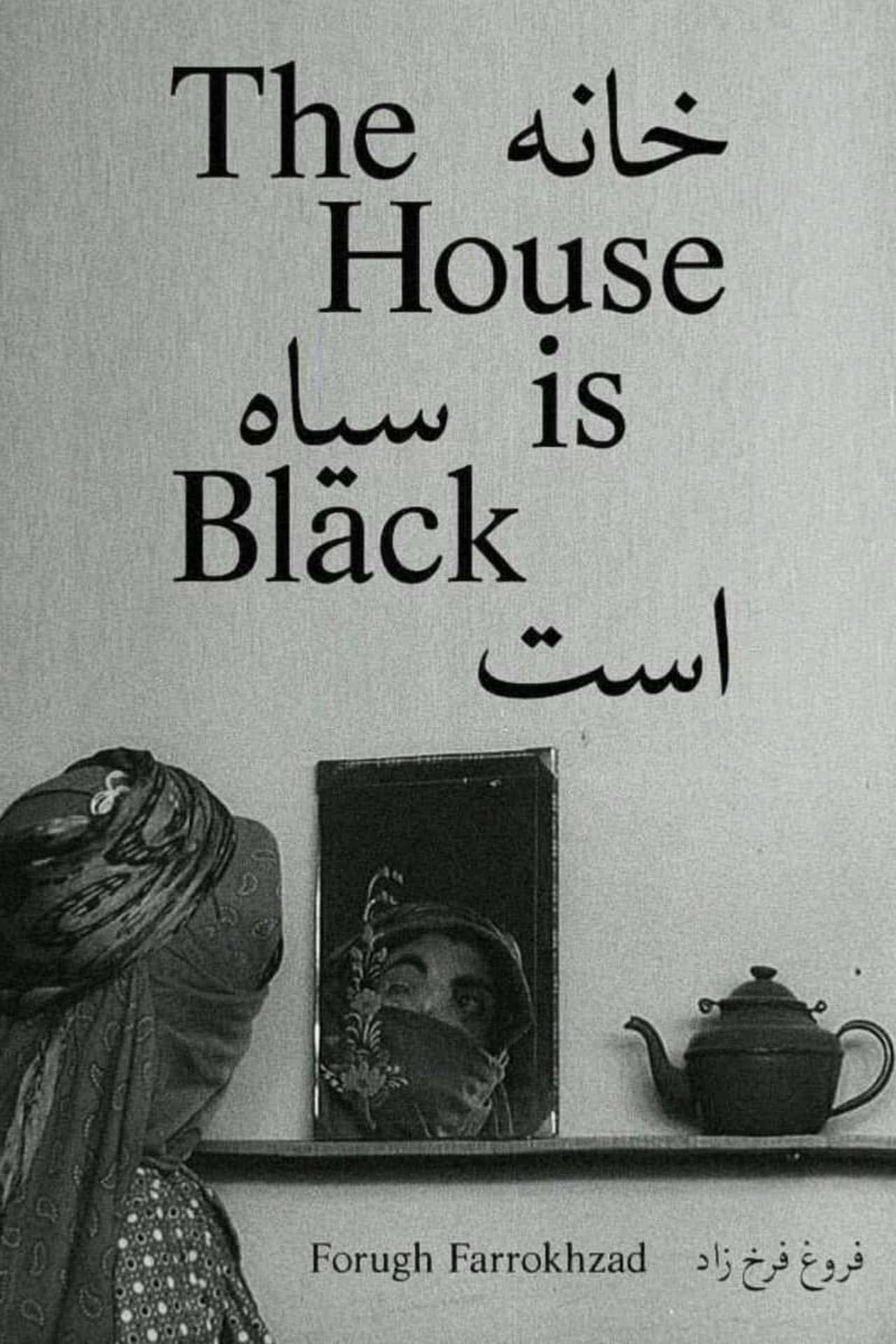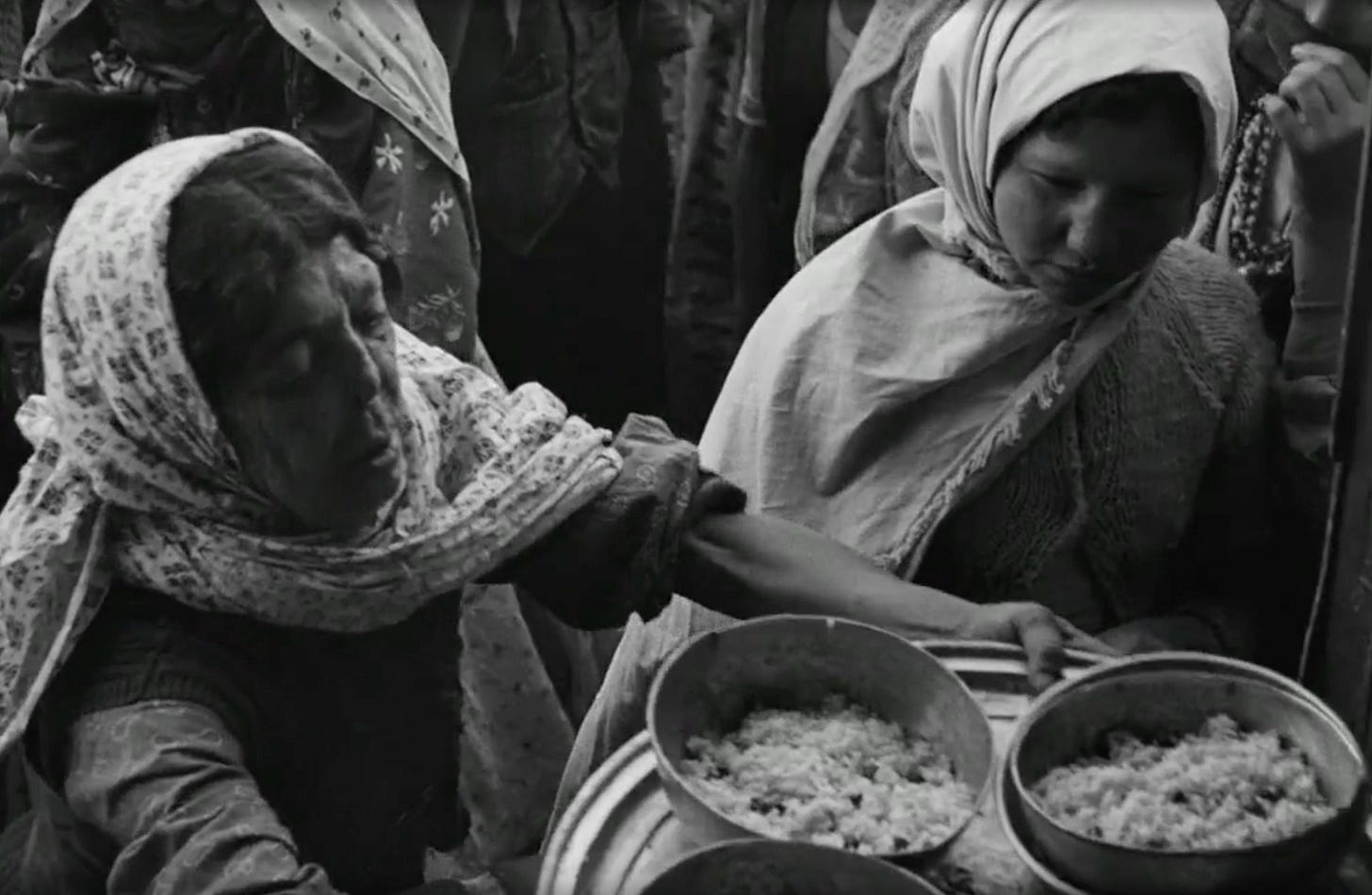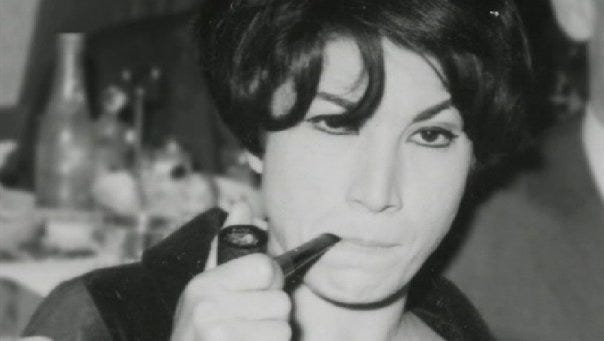There is no shortage of ugliness in the world
There would have been more ugliness
if man had closed his eyes to it.
But man is a problem solver.
On this screen will appear an image of ugliness, a vision of pain
that no caring human being should ignore.
To cure this ugliness,
to help to ease the pain,
and to comfort the victims
is the motive behind making this film.
(Opening lines of Forugh Farrokhzad’s film, The House is Black.)
I called my Substack ‘A Kind of Solution’ because I thought that no matter how grim the situation, how much hunger, thirst, loneliness, sadness, anger and injustice there is in the world, there would always be some kind of solution. Perhaps not the solution we wanted, but at least something which still nurtured within its dark soil the seeds of hope, or redemption.
On a day such as this, in which we witness such violence, and brace ourselves for all the violence to come, it is hard not to despair. Because violence begets violence, and massive violence begets massive violence. That is my answer to all those who celebrate, excuse, or justify it, in any form.
A day which began with the US bombing Iran, ended with my son Daniel witnessing the aftermath of a machine gun attack and suicide bombing on the Mar Elias church in Damascus in Syria.
Perhaps the only usefulness of art is to gently, patiently, slowly push back the spreading darkness. To begin to undo the violence.
So I would like to share with you a 1962 film by the beautiful, persecuted Iranian poet Forugh Farrokzhad (1934-67). Please watch it, if you can carve 21 minutes and 49 seconds out of your busy life. Even though it is not an easy film. The time for easy films is over. The narration is by Forugh herself, and includes verses from the Qur’an, the Old Testament, and her own poetry. Here is the link:
I said if I had the wings of a dove
I would fly away and be at rest
I would go far away to take refuge in the desert
I would rush to a shelter
away from windy storm and tempest
for I have seen misery and wickedness on earth
the universe pregnant with inertia
has given birth to the wrong.
where should I take refuge
outside Your spirit and
Your presence?
If I hang on to the wings of the morning breeze
and reside in the deep of the sea
your hand will still weigh on me
Forugh Farroukhzad is better known for her poems of passion. For the first time in Persian literature ‘the beloved’ - so celebrated by male poets - found her voice. And what she wrote so shocked the conservative establishment that her work has been banned ever since - both before and since the 1979 revolution. For many Iranians she was, and remains, a hero.
The Wind Will Take Us (extract, translated by Ahmad Karimi Hakkak)
In my small night, ah
the wind has a date with the
leaves of the trees,
in my small night there is
agony of destruction
listen -
do you hear the darkness blowing?
I look upon this bliss as a
stranger
I am addicted to my despair.
listen do you hear the darkness blowing?
something is passing in the night
the moon is restless and red
and over this rooftop where crumbling is a constant fear
clouds, like a procession of mourners
seem to be waiting for
the moment of rain.
a moment
and then nothing
night shudders beyond this window
and the earth winds to a halt
beyond this window
something unknown is watching you and me.
If you would like to know more about Forugh Farrokhzad, rebel, feminist, and iconoclast, here are some links:
https://poetry.sfsu.edu/archive/events/29158-legacy-forugh-farrokhzad-sholeh-wolpe-jasmin-darznik-and-shabnam-piryaei.html
https://www.bbc.co.uk/programmes/w3ct38tj
https://persianlanguageonline.com/re-imagining-the-self-in-nature-through-the-lens-of-forugh-farrokhzad/
http://farrokhzadpoems.com









